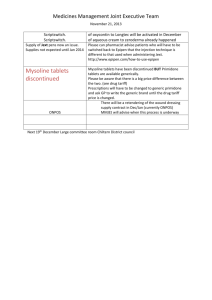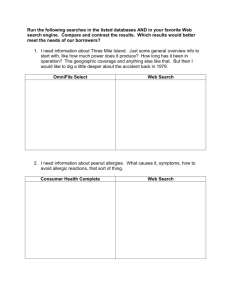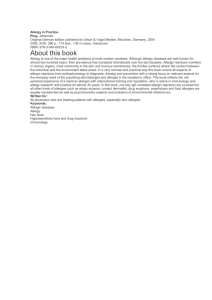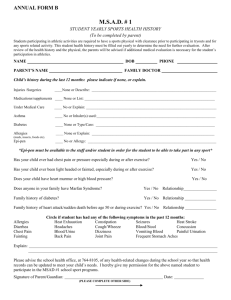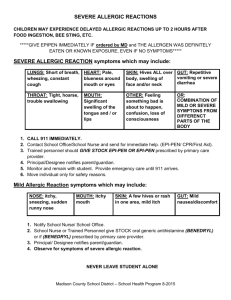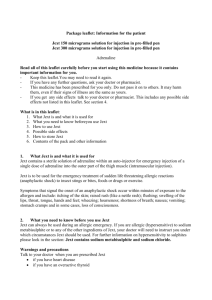Severe Allergic Reactions Policy
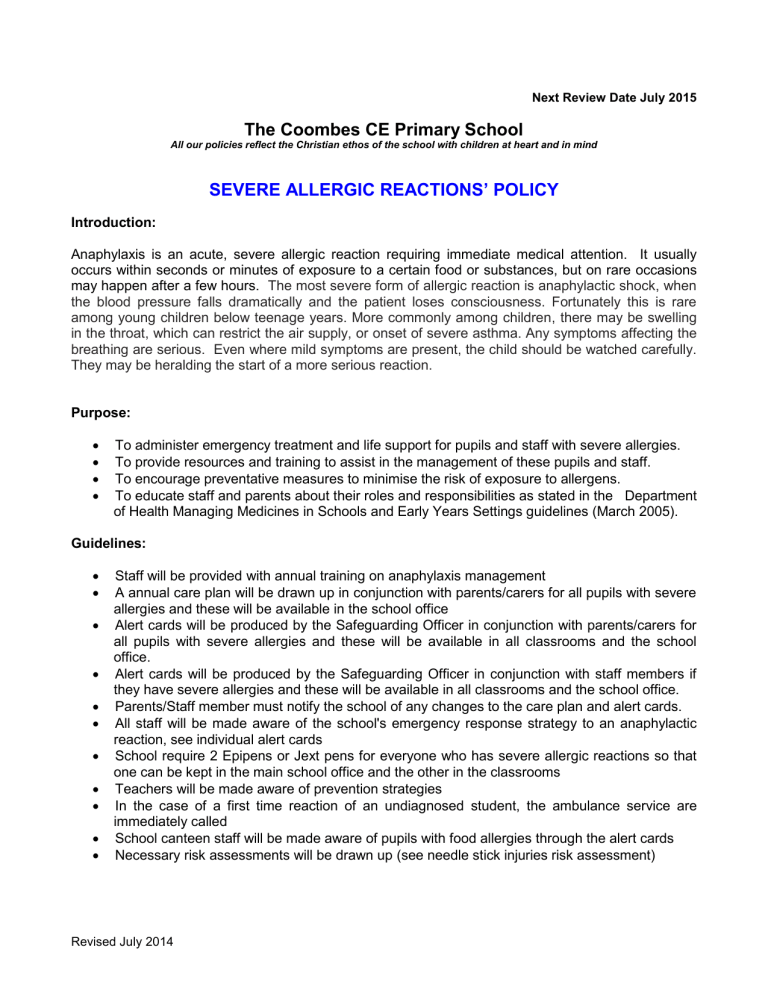
Next Review Date July 2015
The Coombes CE Primary School
All our policies reflect the Christian ethos of the school with children at heart and in mind
SEVERE ALLERGIC REACTIONS ’ POLICY
Introduction:
Anaphylaxis is an acute, severe allergic reaction requiring immediate medical attention. It usually occurs within seconds or minutes of exposure to a certain food or substances, but on rare occasions may happen after a few hours. The most severe form of allergic reaction is anaphylactic shock, when the blood pressure falls dramatically and the patient loses consciousness. Fortunately this is rare among young children below teenage years. More commonly among children, there may be swelling in the throat, which can restrict the air supply, or onset of severe asthma. Any symptoms affecting the breathing are serious. Even where mild symptoms are present, the child should be watched carefully.
They may be heralding the start of a more serious reaction.
Purpose:
To administer emergency treatment and life support for pupils and staff with severe allergies.
To provide resources and training to assist in the management of these pupils and staff.
To encourage preventative measures to minimise the risk of exposure to allergens.
To educate staff and parents about their roles and responsibilities as stated in the Department of Health Managing Medicines in Schools and Early Years Settings guidelines (March 2005).
Guidelines:
Staff will be provided with annual training on anaphylaxis management
A annual care plan will be drawn up in conjunction with parents/carers for all pupils with severe allergies and these will be available in the school office
Alert cards will be produced by the Safeguarding Officer in conjunction with parents/carers for all pupils with severe allergies and these will be available in all classrooms and the school office.
Alert cards will be produced by the Safeguarding Officer in conjunction with staff members if they have severe allergies and these will be available in all classrooms and the school office.
Parents/Staff member must notify the school of any changes to the care plan and alert cards.
All staff will be made aware of the school's emergency response strategy to an anaphylactic reaction, see individual alert cards
School require 2 Epipens or Jext pens for everyone who has severe allergic reactions so that one can be kept in the main school office and the other in the classrooms
Teachers will be made aware of prevention strategies
In the case of a first time reaction of an undiagnosed student, the ambulance service are immediately called
School canteen staff will be made aware of pupils with food allergies through the alert cards
Necessary risk assessments will be drawn up (see needle stick injuries risk assessment)
Revised July 2014
Medication:
Epi-Pens and Jext pens are the responsibility of the parents/carers/staff member and they must ensure that these are in date and replaced if used.
School request 2 Epipens or Jext pens for everyone who has severe allergic reactions so that one can be kept in the main school office and the other in the classrooms
All medicines should be clearly named with dosage and frequency on the label.
Personal Epipens or Jext pens must not be used on other pupils
Epi-Pens or Jext pens are the responsibility of the pupil ’s teachers on school trips and Staff members will carry their own Epi-Pens or Jext pens.
Ensure both Epipens or Jext pens are taken on any school trips.
School trips - All staff to be made aware of anyone who has severe allergic reactions and what medication they made need to administer
Staff to record any medication administered during the school day in the medication log held in the school office
Symptoms & Actions
If a pupil or member of staff with known anaphylaxis complains of or presents with the following symptoms:
Difficulty breathing
Swelling of tongue
Tightness in throat
Difficulty talking
Persistent cough
Collapse
Pale and floppy
Staff will need to:
Obtain and administer the Epi-Pen or Jext pen into the muscle of the upper outer thigh.
If the Epi-Pen or Jext pen is not administered correctly call for a backup Epi-Pen or Jext pen
Call for an ambulance and notify the school office who will notify the parents.
Relocate other pupils, if in the classroom
Stay with pupil or member of staff until an ambulance arrives, and inform them of the time the
Epi-pen or Jext pen was administered.
Keep the pupil or member of staff in the recovery position with legs raised until the ambulance arrives (do not let them sit up).
School Environment:
The school will not implement a nut ban but will encourage parents via the school newsletter not to send nuts or products containing nuts into school.
Revised July 2014
